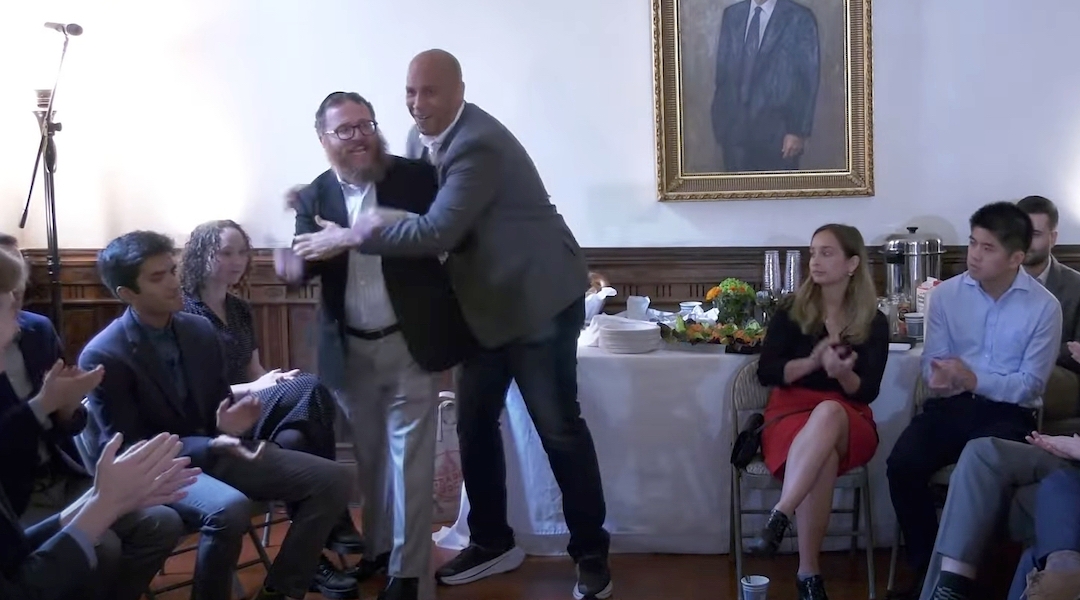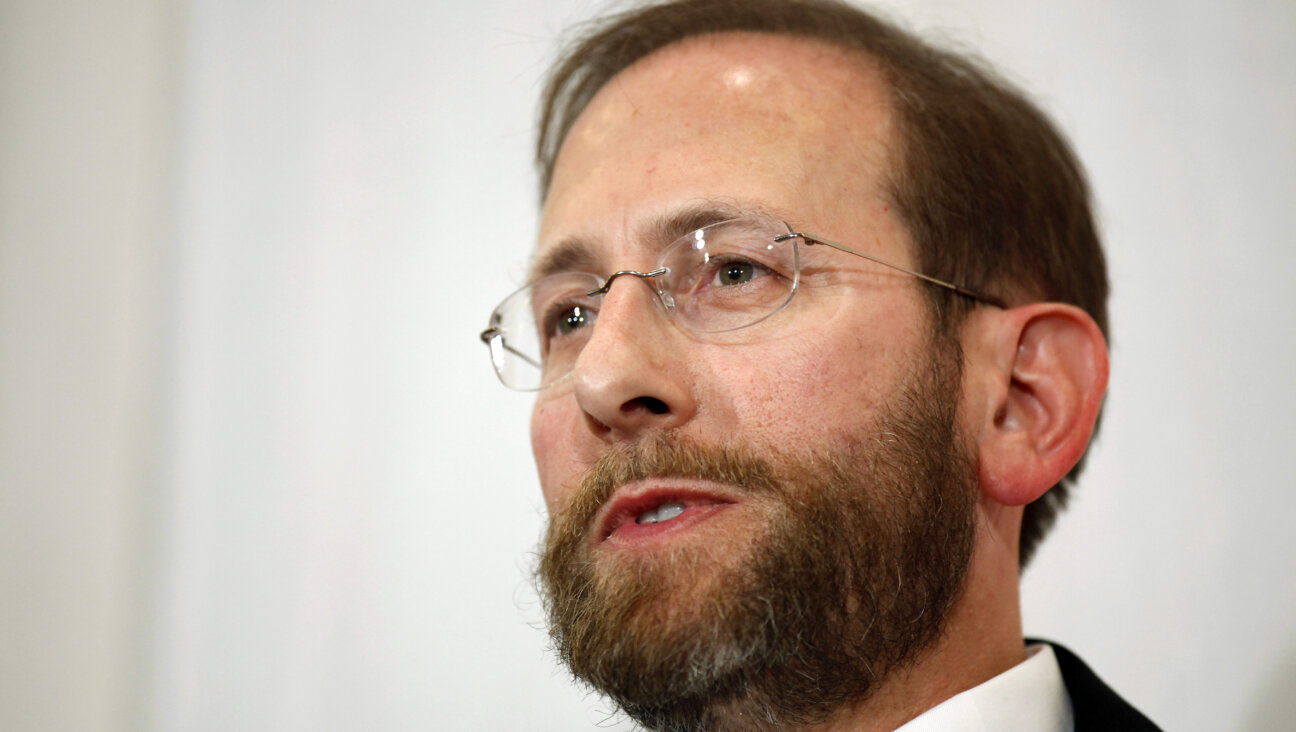Six Months After Charlottesville, White Nationalists More Violent, Fractured

A man makes a slashing motion across his throat toward counter-protesters as he marches with other white nationalists, neo-Nazis and members of the ‘alt-right’ during the ‘Unite the Right’ rally in Charlottesville, Virginia. Image by Getty Images
Six months since neo-Nazis, white supremacists and “alt-right” activists joined forced and took to the streets of Charlottesville, Virginia, in a parade of hate that reverberated across America, organizers of the “Unite the Right” rally have more visibility, but not much else to show for it.
An analysis prepared by the Anti-Defamation League finds that extremists participating in the Charlottesville march emerged weaker and more fractured than before. They are also coping with the consequences of intense scrutiny and retribution they had never seen in their previous years of extremist activism.
At the same time, the report, published Monday on the six month anniversary of the August 12 rally, also found a rise in violent attacks carried out by some of the participating groups, indicating perhaps a further radicalization among American white nationalists.
The bottom line, however, seems clear: If the goal of descending on Charlottesville to protest the city’s planned removal of Confederate statue was to unite all factions of America’s nationalist movements, then it was a glaring failure.
“Any harmony was short-lived,” the report states. “In the days immediately after Unite the Right, those divisions re-emerged, stronger than ever.”
The main division is between groups broadly classified as “hard right” and those on the “alt-right.” All share the goal of a “white America,” but diverge on tactics. Charlottesville stands out as their only major effort to cooperate on a national level, and the ADL has seen only a few small-scale, sporadic attempts to repeat such cooperation.
Participant in the rally, which brought together all stripes of white nationalists — from the Ku Klux Klan to armed militias to “alt-right” online activists — have also suffered consequences on the personal and organizational levels.
Websites of hate groups, such as the white supremacist publication Daily Stormer, were kicked off hosting platforms such as Google and GoDaddy. Social media companies became stricter in banning white nationalists and neo-Nazis, as did crowdsourcing websites. Companies like Airbnb announced they will not rent properties to members of these groups. And many rally participants, who were caught on camera marching open-faced and chanting racist slogans, lost their jobs, were outed publicly as bigots and “doxxed,” a measure in which their personal and financial information was posted online.
Subsequently, according to the report, most white supremacist online activity migrated to platforms that are less regulated but are also mostly out of reach for mainstream users.
But while public attention and increased scrutiny succeeded in limiting and fracturing the nationalistic right, the ensuing months saw an increase in white supremacist violence across America. The report points out a series of murders attributed to members of extremist groups, including the December killing of gay Jewish college student Blaze Bernstein allegdly carried out by a sympathizer of the Atomwaffen Division organization. Other violent incident included increasing calls for a “race war” and attacks on counter-protesters.
“It’s been a period marked by seismic structural shifts and more than a few power struggles,” the ADL concluded, noting that a the spirit of solidarity among white supremacists in Charlottesville has since dissipated. “And yet, by some measures, evidence of white supremacist activism and engagement is more conspicuous than ever before.”
Contact Nathan Guttman at [email protected] or on Twitter @nathanguttman
The Forward is free to read, but it isn’t free to produce

I hope you appreciated this article. Before you go, I’d like to ask you to please support the Forward.
Now more than ever, American Jews need independent news they can trust, with reporting driven by truth, not ideology. We serve you, not any ideological agenda.
At a time when other newsrooms are closing or cutting back, the Forward has removed its paywall and invested additional resources to report on the ground from Israel and around the U.S. on the impact of the war, rising antisemitism and polarized discourse.
This is a great time to support independent Jewish journalism you rely on. Make a gift today!
— Rachel Fishman Feddersen, Publisher and CEO
Support our mission to tell the Jewish story fully and fairly.
Most Popular
- 1

Opinion The dangerous Nazi legend behind Trump’s ruthless grab for power
- 2

Opinion A Holocaust perpetrator was just celebrated on US soil. I think I know why no one objected.
- 3

Culture Did this Jewish literary titan have the right idea about Harry Potter and J.K. Rowling after all?
- 4

Opinion I first met Netanyahu in 1988. Here’s how he became the most destructive leader in Israel’s history.
In Case You Missed It
-
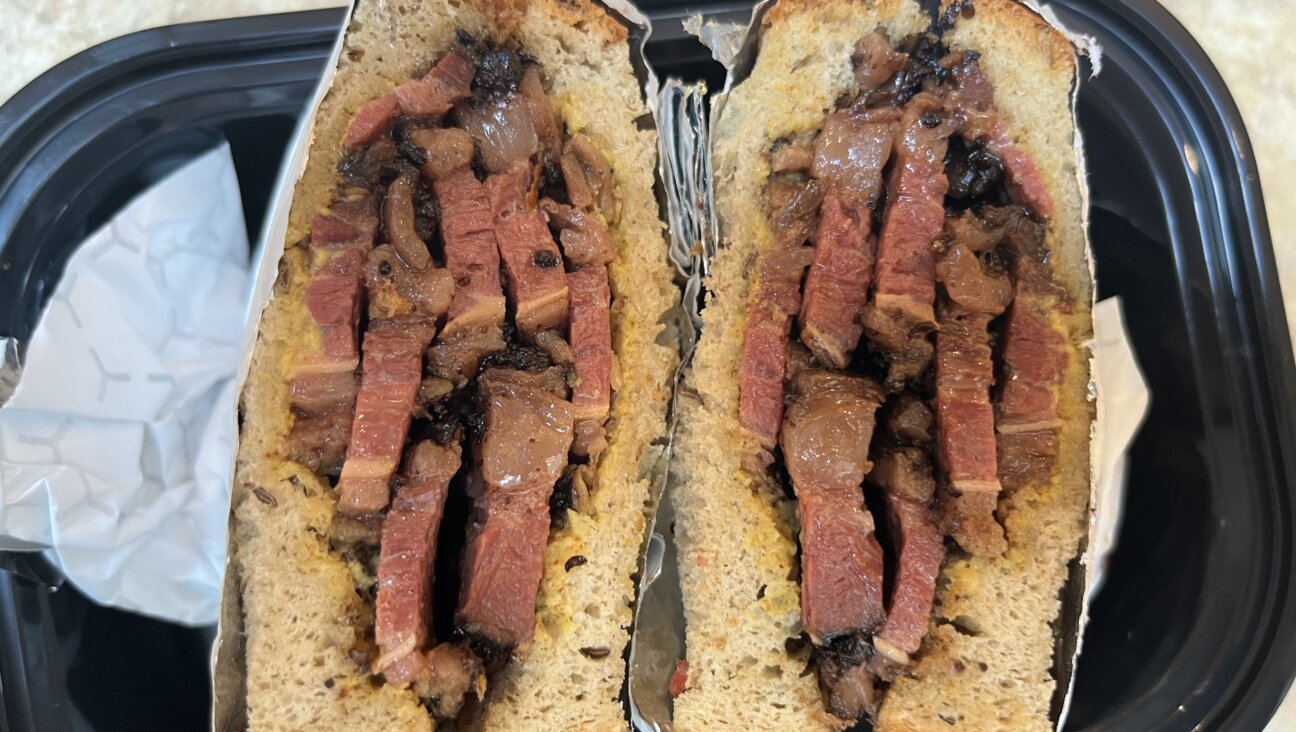
Culture I have seen the future of America — in a pastrami sandwich in Queens
-

Culture Trump wants to honor Hannah Arendt in a ‘Garden of American Heroes.’ Is this a joke?
-
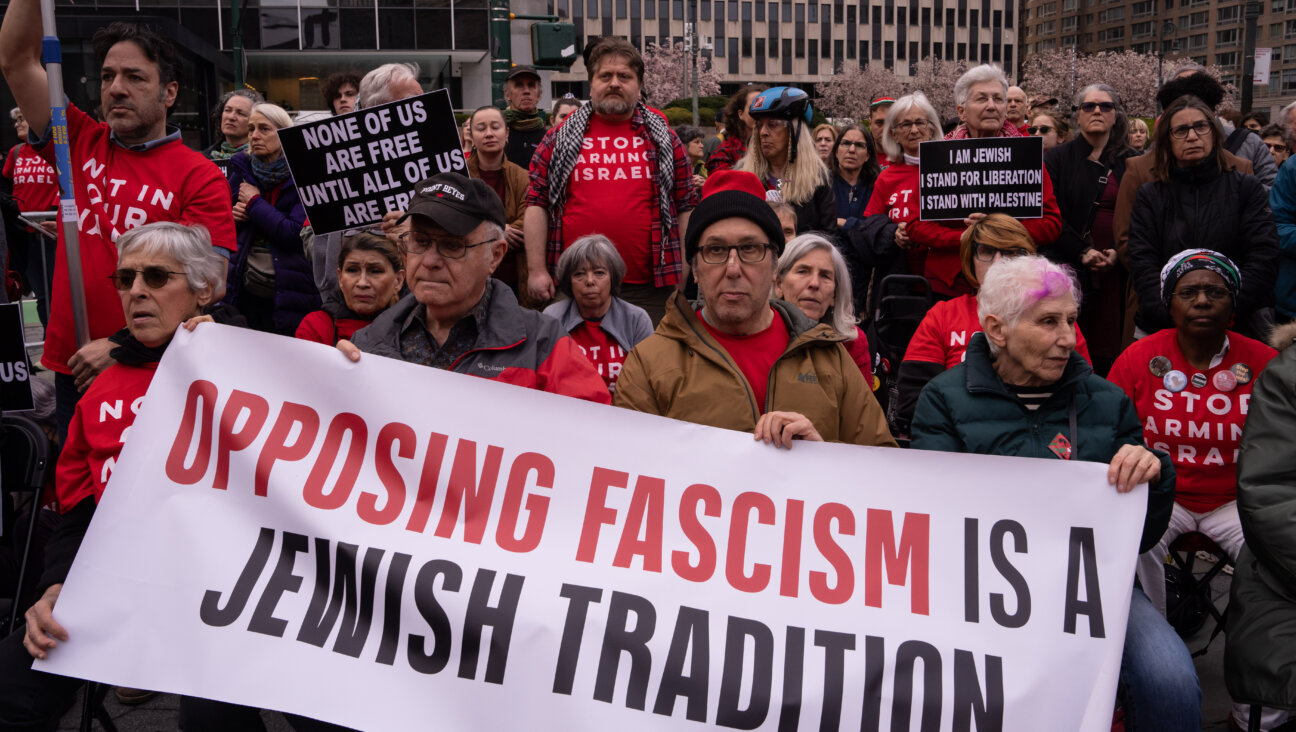
Opinion Gaza and Trump have left the Jewish community at war with itself — and me with a bad case of alienation
-
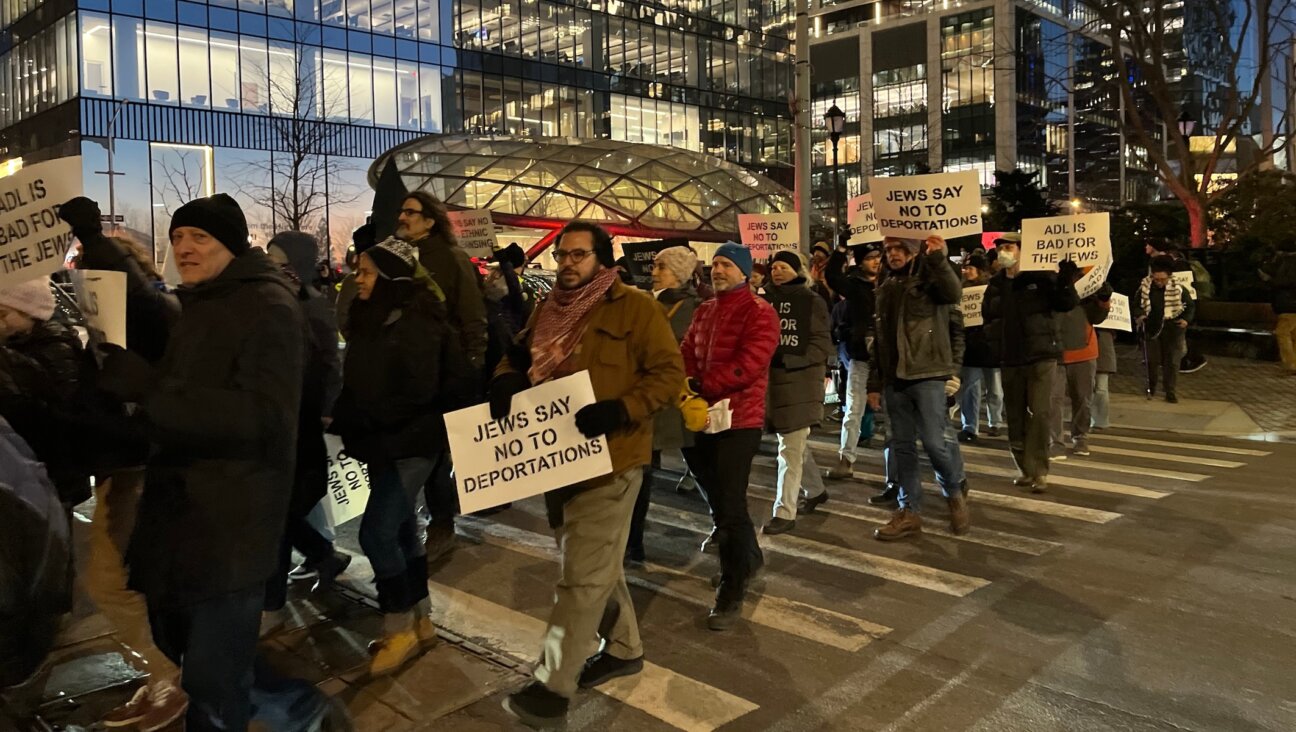
Fast Forward Trump administration restores student visas, but impact on pro-Palestinian protesters is unclear
-
Shop the Forward Store
100% of profits support our journalism
Republish This Story
Please read before republishing
We’re happy to make this story available to republish for free, unless it originated with JTA, Haaretz or another publication (as indicated on the article) and as long as you follow our guidelines.
You must comply with the following:
- Credit the Forward
- Retain our pixel
- Preserve our canonical link in Google search
- Add a noindex tag in Google search
See our full guidelines for more information, and this guide for detail about canonical URLs.
To republish, copy the HTML by clicking on the yellow button to the right; it includes our tracking pixel, all paragraph styles and hyperlinks, the author byline and credit to the Forward. It does not include images; to avoid copyright violations, you must add them manually, following our guidelines. Please email us at [email protected], subject line “republish,” with any questions or to let us know what stories you’re picking up.








